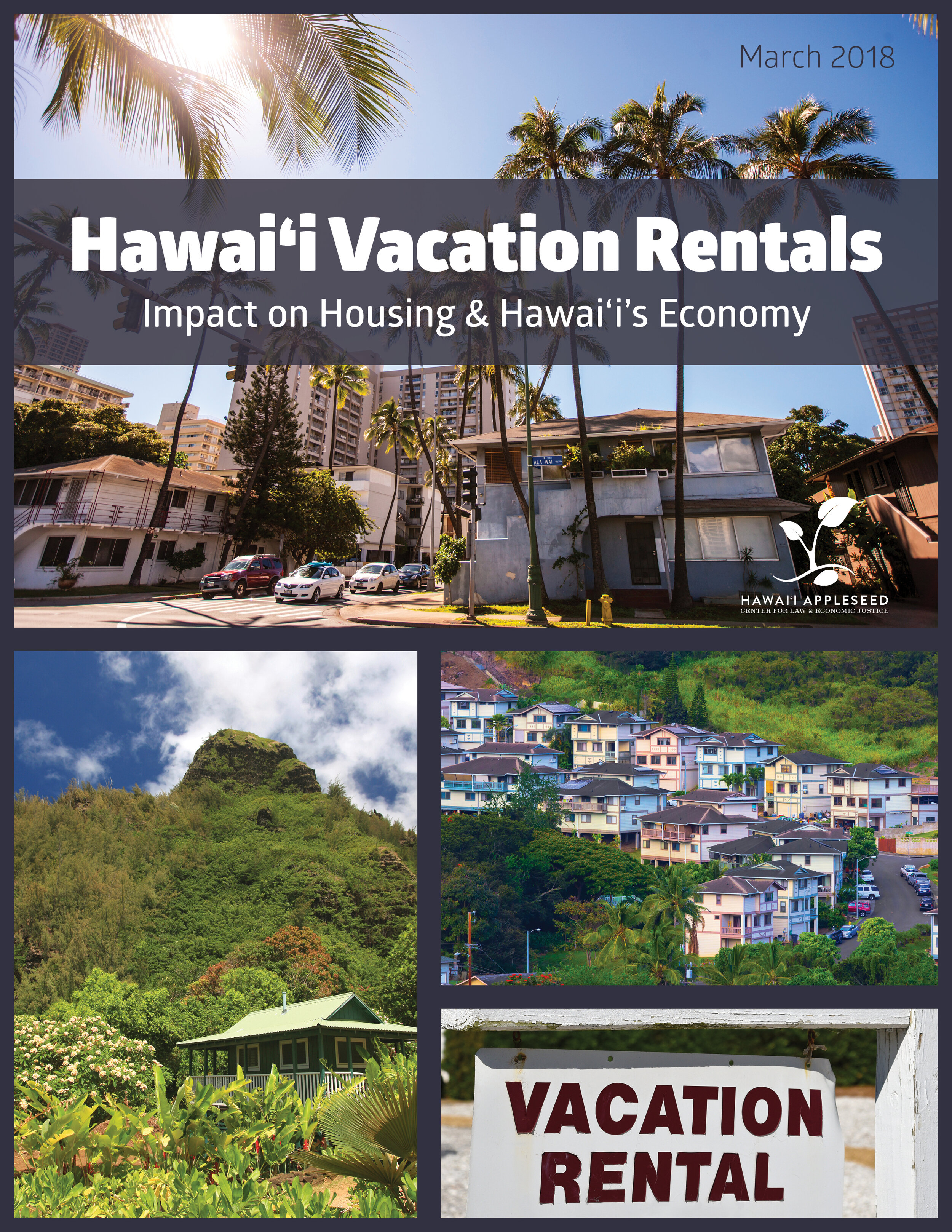Hawaiʻi Vacation Rentals: Impact on Housing & Hawaiʻi’s Economy
Executive Summary
Finding affordable housing has long been a significant challenge for Hawaiʻi’s residents. Over the past decade, the problem has risen to crisis proportions. Barriers to achieving economic stability are daunting for most Hawaiʻi residents, and are nearly insurmountable for low-income households. The growth of the vacation rental industry in recent years is exacerbating these problems.
While vacation rentals offer the possibility of extra income for some residents and additional tax revenue for the state, many of the benefits go to nonresident investors. The adverse consequences of housing stock lost to vacation rentals far outweighs the benefits they might provide to local families and our community.
Over just the last two years, the number of vacation rental units (VRUs) has increased by 35 percent.
There are currently 23,000 VRUs being advertised around the state.
Up to 93 percent of these listings are for entire homes, rather than the rent-out-a-room image purveyed by the VRU industry.
One out of every 24 housing units in the state is a VRU, with some communities being completely overwhelmed by the industry’s growth.
On Kauaʻi, one in eight homes is used as a VRU; in Lahaina, on Maui, the ratio drops to one in three.
The reason why investors are choosing VRUs over long-term rentals is obvious: the average VRU brings in about 3.5 times more revenue than a long-term rental unit. However, the loss of long-term rentals to VRUs means higher housing costs for Hawaiʻi residents. Although Hawaiʻi derives some benefits from VRUs through increased tourism spending and tax collection, the benefits are far outweighed by the costs.
San Francisco, which—like Honolulu—has struggled with high housing costs and a proliferation of VRUs, found that every housing unit withdrawn from the market to be used as a VRU produces a net negative economic impact, even if the unit generates host income, visitor spending, and hotel taxes. San Francisco estimates that their local economy loses up to $300,000 per VRU per year. The impact of VRUs in Hawaiʻi is likely to be similar.
Hawaiʻi should consider adopting measures that will help reverse the damage caused by the proliferation of illegal VRUs in the state, including:
Making it illegal to advertise a VRU that is not permitted and requiring all VRU advertisements to include a permit number (currently, enforcement agencies report that a VRU advertisement is not sufficient to prove that the unit is actually being used as a VRU);
Requiring that internet hosting platforms identify and remove noncompliant hosts;
Empowering local neighbors to enforce the laws against VRUs by granting them standing to file a complaint with the courts;
Increasing the staff of the county enforcement office;
Requiring owners or hosts to be present whenever they are hosting; and
If, after cracking down on illegal VRUs, communities decide to modestly increase the number of VRU permits, dispersing permitted rentals unit in communities throughout the island to avoid over-saturation.
Unless Hawaiʻi takes action against illegal VRUs, their numbers will continue to rise as investors convert more homes built for residents into vacation rentals for visitors. Home prices and rents will rise, and Hawaiʻi’s families, communities and economy will suffer.

